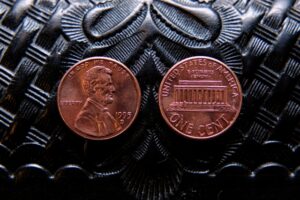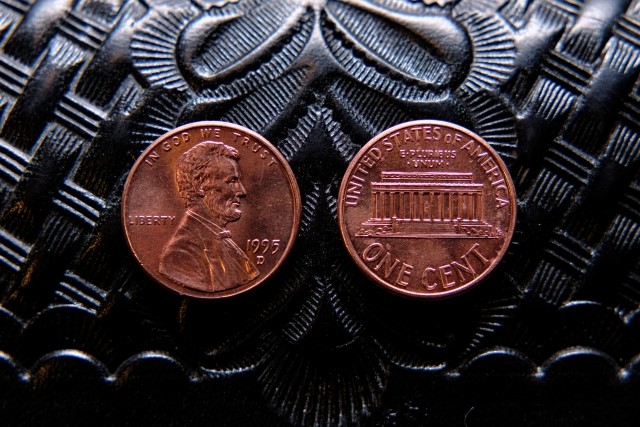秋田県公立高校入試分析(英語)の5回目です。
今回は、最後の第5問を扱いますが、
第5問は、「長文読解問題」です。
それでは、第5問を見ていきます。
第5問の配点は、
(1)から(6)まで、全部で8問。
各3点✖️8=計24点、で合計24点となっています。
第5問・・・長文読解問題
次の英文は、高校生のさくら (Sakura) が留学の経験を経て考えたことについて書いた
ものです。これを読んで、(1) 〜 (6) の問いに答えなさい。
It was eight o’clock. I was sixteen years old. When I got to school, some
student council members were standing in front of the school. They were
smiling and *greeting the students. So I said, “Good morning” like everyone
else, but I said to myself, “Why are they doing that? Is the greeting so
important?”
When I was seventeen, I went to the United States to study English and learn
something 《 》about American culture. One day, I went to a shop. I saw
a *tray near *cash register. There were some *pennies in the tray. I asked
a *cashier what it was because I had no idea. Then, he explained it to me.
“At some stores in America, we have this tray near the cash register. Some
pennies are in the trays. When people get pennies as change and they don’t
need them, they put the pennies in the tray for other people. If people need
a few pennies to buy things, they can take some from the trays and use them
to *pay.” Then, when I was going to pay, I needed three pennies. I wanted to use
the tray, so (A) I did. I was glad because I could try a part of American culture.
Soon after that, something interesting happened to me. My host mother and
I went to a *drive-through restaurant. When my host mother *ordered some
hamburgers there and was going to pay, the casher said, “(B) You don’t have
to pay.” She was surprised and asked why. He answered, “The man before you
has already paid.” She said, “I don’t know about that customer, but he paid
for me!” My host mother and I talked a little and she said, “We will pay for the
next family.” We felt satisfied with our decision. A few days later, I read an
article in the newspaper and learned that many other customers did the same
thing after us. About fifty people paid for other people’s food!
These two examples in America have taught me important things. In Japan,
when the student council members greeted the students, many of them said,
“Good morning.” So did I that, too. But in these examples in the United States,
people did not need to donate pennies or pay for other customers. They did
these out of the *kindness of their hearts. They did not *care who they were
helping. This idea was new to me and changed my (C) perspective. I said to
myself, “I will try something for others without wanting anything from them.”
Now, it is eight o’clock. I am eighteen years old and I am back in Japan. I am
in front of the school as a member of the student council. I am smiling and
greeting the students. Some students pass by without saying, “Good morning.”
Other students greet us and look happy. That makes me happy. Now, I finally
know how I can *enrich my life.
【注】
*greet:あいさつをする *tray:トレイ *cash register:店のレジ
*penny:1セント硬貨(1セントは約1円) *cashier:店のレジ係
*pay (paid):支払う(支払った) *drive-through:ドライブスルー
*order:注文する *kindness:親切 *care:気にする
*enrich:豊かにする
(1)《 》に当てはまる英語1語を、次のア〜エから1つ選んで記号を書きなさい。
ア strict イ same ウ unique エ expensive
(2)下線部 (A) I did の具体的な内容として最も適切なものを、次のア〜エから
1つ選んで記号を書きなさい。
ア took the pennies from the tray
イ put the pennies in the tray
ウ wanted the pennies as change
エ left pennies as change
(3)下線部 (B) You don’t have to pay の具体的な理由を、日本語で書きなさい。
(4)下線部 (C) perspective の意味として最も適切なものを、本文の内容から判断
して次のア〜エから1つ選んで記号を書きなさい。
ア 転換 イ 視点 ウ 援助 エ 期待
(5)本文の内容と合っているものを、次のア 〜カ から2つ選んで記号を書きなさい。
ア Before Sakura went to America, she didn’t think greeting was important
and didn’t greet other students.
イ When people use pennies near the cash register in America, they must
give them back.
ウ A lot of people at the drive-through restaurant paid for the next customers.
エ People in the United States always help others because they have to do it.
オ Sakura feels good because some students greet her in front of the school
now
(6)次の英文は、ある生徒が本文を読んで学んだことをまとめたものです。本文の内容に合うように、①、② に適する英語1語を、下の ア〜カ からそれぞれ1つずつ選んで記号を書きなさい。
was kind to them. However, I didn’t want to help people if I didn’t ( ① )
them. Also,I always thought that someone else helped people who had troubles. This story tells me that our kind actions may give people good feelings and change their lives. I hope that these actions will ( ② ) forever
in many places in the world.
ア finish イ know ウ agree
エ continue オ make カ solve
(1)《 》に当てはまる語
(1)《 》に当てはまる英語1語を、次のア〜エから1つ選んで記号を書きなさい。
ア strict イ same ウ unique エ expensive
それぞれの選択肢の意味は下記の通り。
ア strict:厳しい
イ same:同じ
ウ unique:独特の・固有の
エ expensive:高価な
【解説】
◎本文では下記のよう文の中で出てきます。
When I was seventeen, I went to the United States to study English and learn
something 《 》about American culture.
「17歳の時、私は英語を学び、アメリカ文化について何か《 》のものを学ぶ
ためにアメリカへ行きました。」
◎この後の、アメリカでの2つの体験を述べていますが、
どれも日本とは違うアメリカ特有の体験をしたようです。
▶︎ここからすると、strict や same, expensive がおかしいことがわかります。
【解答】
よって、正解は、
ウ unique です。
・When I was seventeen, I went to the United States to study English and learn
something unique about American culture.
「アメリカ文化について何か特有なこと」
(2)(A) I did の具体的な内容
(2)下線部 (A) I did の具体的な内容として最も適切なものを、次のア〜エから
1つ選んで記号を書きなさい。
ア took the pennies from the tray
イ put the pennies in the tray
ウ wanted the pennies as change
エ left pennies as change
それぞれの選択肢の意味は下記の通り。
ア トレイからそのセント硬貨を取りました
イ トレイにそのセント硬貨を置いた
ウ お釣りとしてそのセント硬貨が欲しかった
エ お釣りとしてセント硬貨を置いた
【解説】
・ここの段落では、
さくらさんが17歳の時にアメリカで経験した出来事のうちの1つが書かれています。
その出来事とは…
One day, I went to a shop. I saw
a *tray near *cash register. There were some *pennies in the tray. I asked
a *cashier what it was because I had no idea. Then, he explained it to me.
▶︎店に行ったら、レジの近くにトレイがあって、そこに3セントがあったので、
それが何なのかをレジ係に聞いたら、その説明をしてくれました。
その説明は次の通り
“At some stores in America, we have this tray near the cash register. Some
pennies are in the trays. When people get pennies as change and they don’t
need them, they put the pennies in the tray for other people. If people need
a few pennies to buy things, they can take some from the trays and use them
to *pay.”
▶︎アメリカの店には、レジの近くにこのようなトレイを置いている店がある。
そして、トレイの中に幾らかのセント硬貨があります。お釣りとしてセント硬貨を
もらって、それを必要としない時には、他の人のためにトレイにそのセント硬貨を
置いておきます。もしも、ものを買うのにいくらかセント硬貨を必要するなら、その
トレイからセント硬貨をとって支払いに使うことができるのです。
これを聞いた後に、さくらさんは、
Then, when I was going to pay, I needed three pennies. I wanted to use
the tray, so (A) I did. I
▶︎それから、私が支払いをしようとした時に、3セントが必要でした。
私はそのトレイを使いたかったので、私はそうしました。
となるわけです。
👉つまり「そうした」というのは、
前の話の部分での「アメリカ人のそのトレイの使い方」と同じ使い方を
した、という意味だとわかります。
【解答】
よって、正解は、
ア took the pennies from the tray となります。

(3)(B) You don’t have to pay の具体的な理由
(3)下線部 (B) You don’t have to pay の具体的な理由を、日本語で書きなさい。
【解説】
◎ここでは、さくらさんがアメリカで経験した2つ目の出来事が書かれています。
My host mother and I went to a *drive-through restaurant. When my host
mother *ordered some hamburgers there and was going to pay,
the casher said, “You don’t have to pay.”
▶︎ホストファミリーのお母さんと私がトライブスルー・レストランに行きました。
お母さんと私がそこでハンバーガーを注文して、支払いをしようとした時、
レジ係が言った言葉が →「支払う必要がありません」という言葉なのです。
▶︎これでは、確かに「なぜ支払う必要がないのか」わかりません。
さらに文を見ていくと、その後にどうして支払う必要がないのかをレジ係が
説明しています。それが「具体的内容」となるはずです。
レジ係の説明は下記の通り。
“The man before you has already paid.”
▶︎あなたたちの前の人がもう既に支払っているのです。
👉これが具体的な理由です。
【解答】
ここから、正解は、
さくら達の前の人が、さくら達のバンガー代を既に支払っているため となります。
(4)perspective の意味
(4)下線部 (C) perspective の意味として最も適切なものを、本文の内容から判断
して次のア〜エから1つ選んで記号を書きなさい。
ア 転換 イ 視点 ウ 援助 エ 期待
【解説】
◎(C) perspective の前後の文を確認してみましょう。
ここの段落では、さくらさんのアメリカでの2つの経験からの考察が書かれています。
・These two examples in America have taught me important things. In Japan,
when the student council members greeted the students, many of them said,
“Good morning.” So did I that, too. But in these examples in the United States,
people did not need to donate pennies or pay for other customers. They did
these out of the *kindness of their hearts. They did not *care who they were
helping. This idea was new to me and changed my (C)perspective. I said to
myself, “I will try something for others without wanting anything from them.”
▶︎アメリカでのこの2つの例は私に重要なことを教えてくれました。日本では、
生徒会のメンバーが生徒達にあいさつをした時、たくさんの生徒は「おはよう」と
言っていました。だから私もそうしました。しかしアメリカでのこの事例では、人々は
セント硬貨を寄付する必要もなかったし他のお客さんのために支払う必要はなかったの
です。彼らは心のやさしさからこのようなことをしたのです。彼らは誰を助けるのかを
気にしませんでした。この考えは私には新鮮で私の (C)perspective を変えました。
私は「何も求めることをせずに他の人に何かをしてみよう」と思いました。
👉このように見ると、
アメリカのでの2つの経験が、「私」の考えた方や見方を変えたのだと
わかります。
【解答欄】
ここから、正解は、
イ 視点 となります。
(5)本文の内容と合うものを選ぶ問題
(5)本文の内容と合っているものを、次のア 〜カ から2つ選んで記号を書きなさい。
ア Before Sakura went to America, she didn’t think greeting was important
and didn’t greet other students.
イ When people use pennies near the cash register in America, they must
give them back.
ウ A lot of people at the drive-through restaurant paid for the next customers.
エ People in the United States always help others because they have to do it.
オ Sakura feels good because some students greet her in front of the school
now.
◎まず選択肢の内容を確認します。
ア さくらがアメリカに行く前、彼女は挨拶が大事だと思わなかったし、他の人に挨拶も
しなかった。
イ アメリカでレジの近くのセント硬貨を使う時、それを返さなければならない。
ウ ドライブスルーのレストランでたくさんの人は次のお客さんの分を支払う。
エ アメリカの人々はしなければいけないのでいつも他の人を助ける。
オ 今学校の前でさくらに挨拶をする生徒もいるので彼女は気持ちがいい。
【解説】
・選択肢の1つ1つを確認します。
ア Before Sakura went to America, she didn’t think greetings was important
and didn’t greet other students.
➡️さくらの日本での様子は、1段落に書かれています。
【When I got to school, some student council members were standing in front
of the school. They were smiling and greeting the students. So I said.
“Good morning” like everyone else, but I said to myself. “Why are they doing
that? Is the greeting so important?】
(私が<さくら>学校に着いた時、生徒会のメンバーが学校の前に立っていました。彼らは
にこやかに生徒に挨拶をしていました。だから私も他のみんなと同じように「おはよう」と言いましたが、心の中では「なぜ彼らはそんなことをしているのか?挨拶はそんな
大切なのか?」と思っていました。)
▶︎「挨拶は大切だと思ってはいなかったが、挨拶はしていた」ので、❌
イ When people use pennies near the cash register in America, they must
give them back.
➡️レジ近くのセント硬貨については、2段落目に書かれています。
【At some stores in America, we have this tray near the cash register. Some
pennies are in the trays. When people get pennies as change and they don’t
need them, they put the pennies in the tray for other people. If people need
a few pennies to buy things, they can take some from the trays and use them
to *pay.】
(アメリカの店では、レジの近くにこのようなトレイがあるところも亜rます。トレイ
にはセント硬貨がいくらか入っています。人がお釣りとしてセント硬貨をもらって、
それを必要としない時、他の人のためにトレイにこのセント硬貨を入れます。もし
ものを買うのに2、3セント必要なら、トレイからそれを取って支払いに使うこと
ができます。)
▶︎「戻さなくてはいけない( they must give them back)」とは書いていないので、❌
ウ A lot of people at the drive-through restaurant paid for the next customers.
➡️3段落目にドライブスルーのレストランの経験が書かれていますが、後半にはこのような部分があります。
【 A few days later, I read an article in the newspaper and learned that many other customers did the same thing after us. About fifty people paid for
other people’s food!】
(2、3日後、私は新聞である記事を読んで、たくさんの他のお客さんが私たちの
後に同じことをしたのを知りました。約50人が他の人々の食べ物のために
支払いをしたのです。)
▶︎「たくさんの人が私たちと同じことをした」- とあるので、そこから⭕️
エ People in the United States always help others because they have to do it.
➡️アメリカの人がどうしてこのようなことをするのか、4段落目にあります。
【 But in these examples in the United States, people did not need to donate
pennies or pay for other customers. They did these out of the kindness of
their heats. They did not care who they were helping.】
(しかしアメリカのこれらの例では、人々はセント硬貨を寄付したり、他のお客さんの
ために支払う必要はありませんでした。彼らは心からの優しさでしたのです。彼らは
誰を助けようとしているのかを気にしていませんでした。)
▶︎「やらなくてはいけないから (they have to do it)」そうしているわけではないから、❌
オ Sakura feels good because some students greet her in front of the school
now.
➡️ 日本に帰ってから、さくらは生徒会に入り学校の前で挨拶します。そのことについて
は、最後の段落に書かれています。
【 I am smiling and greeting the students. Some students pass by without
saying, “Good morning.” Other students greet us and look happy. That makes
me happy.】
(私はにこやかに生徒に挨拶をします。中には「おはよう」と言わないで通り過ぎる
生徒もいます。そうでない生徒は私たちに挨拶をして楽しそうに見えます。それが
私を嬉しくさせます。)
▶︎「挨拶をする生徒もいるのでいい気持ちがする」ようなので、⭕️
【解答】
ここから、解答は、ウ、オ となります。
(6)内容理解問題
(6)次の英文は、ある生徒が本文を読んで学んだことをまとめたものです。本文の内容に合うように、①、② に適する英語1語を、下の ア〜カからそれぞれ1つずつ選んで記号を書きなさい。
was kind to them. However, I didn’t want to help people if I didn’t ( ① )
them. Also,I always thought that someone else helped people who had troubles. This story tells me that our kind actions may give people good feelings and change their lives. I hope that these actions will ( ② ) forever
in many places in the world.
ア finish イ know ウ agree
エ continue オ make カ solve
◎だいだいの内容を確認しましょう
– この物語を読む前は、私は人々は誰かが優しくした時うれしく思うのだと思っていま
した。しかしながら、もし私が人々を ( ① ) しなかったなら自分は彼らを助けたいと
は思っていませんでした。また、他の誰かが困っている人を助けるものだと思って
いました。この物語は私たちの親切な行動が人々に良い感情を与え、彼らの生活を
変えるかもしれないということを私に教えてくれます。私はこれらの行動が、世界の
たくさんの場所で永遠に ( ② ) するだろうことを願っています。
◎選択肢の意味は下記の通りです。
ア finish:〜を終える イ know:〜を知る ウ agree:同意する
エ continue:続く オ make:〜を作る カ solve:〜を解決する
【解説】
・「まとめ」と、選択肢を考えて選びます。
▶︎①の部分は、
「困っている人を助けるのは他の誰か」とあるから、
①には know が入り「知らない人なら助けない」となるようです。
▶︎②の部分では、
「永遠に続く」となると一番意味が通じるようです。
– ②には continue が入るようです。
【解答】
・ここから、解答は、
① イ know, ② エ continue となります。
① However, I didn’t want to help people if I didn’t know them.
② I hope that these actions will continue forever in many places in the world.
これで、
秋田県公立高校入試問題分析(英語)は終了です。



コメント